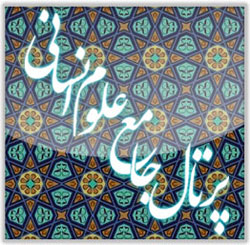Examining the Influence of Mystical Philosophy on the Poetry of Ali Mousavi Garmaroudi: An Analysis of Ontological and Epistemological Implications
Keywords:
mystical philosophy, ontology, epistemology, fana, divine love, unity of being, light, Ali Mousavi Garmaroudi, Persian poetryAbstract
This article examines the profound influence of mystical philosophy on the poetry of Ali Mousavi Garmaroudi, focusing on the ontological and epistemological implications present in his works. Through concepts such as fana (annihilation), light, wahdat al-wujud (unity of being), and divine love, Garmaroudi creates poetry that conveys not only linguistic beauty but also profound mystical messages. Inspired by the teachings of Islamic mystics like Ibn Arabi, Suhrawardi, and Mulla Sadra, he transforms his poetry into a medium for expressing spiritual experiences and philosophical reflections, using symbolic and metaphorical language to explore the intricate themes of human existence within the cosmos and the relationship with the Divine. Using qualitative content analysis, this article examines Garmaroudi’s poetry from ontological and epistemological perspectives to explore how mystical philosophy deepens his reflections. The findings reveal that Garmaroudi’s poetry serves as more than literary expression; it provides a space for mystical and spiritual experiences. Through ontological and epistemological nuances, his works offer a profound understanding of life’s meaning and guide readers toward philosophical and mystical reflections. This study may serve as a foundation for future research in the area of comparative poetry and mystical philosophy, as well as the analysis of philosophical symbolism in Persian literature.













